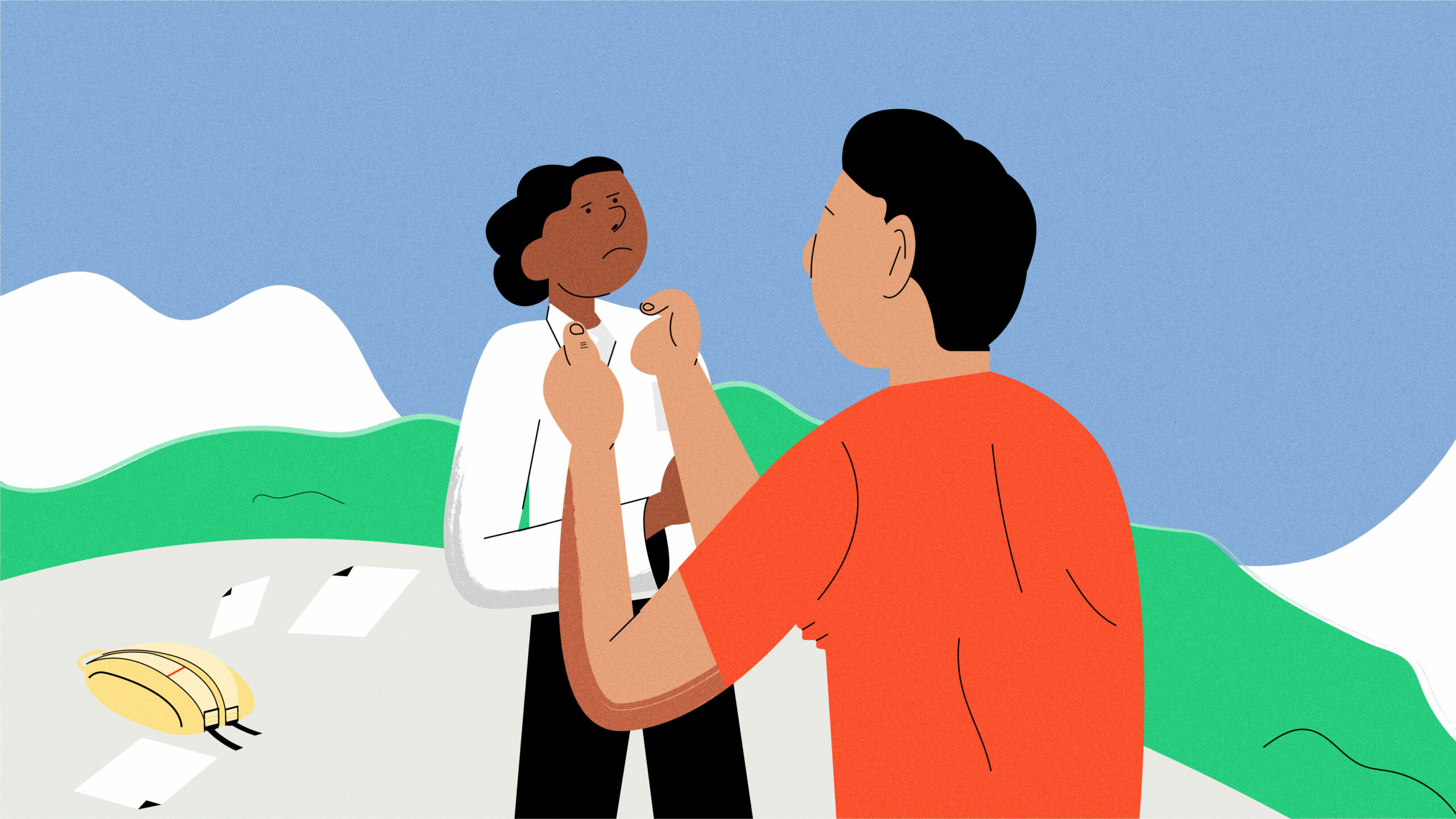
My friend wouldn’t go out without her dark shades on because she always tries to hide her big eyes. This has become natural for her, and going out without her dark shades feels like walking on the street in a gown that is being blown by a strong gust of wind, exposing her nakedness.
We’ve been friends for quite a long time and I never really asked why she couldn’t go out without the shades. I used to think it was the sun but there was a day we wanted to head out in the evening and she still ran back inside to get the glasses. I understood her better after her explanation. “I can’t go out without it because it feels like it draws attention to me. I think the first thing people see when they see me is my eyes. Not the colour of my skin, not my attire, but my big round eyes,” she said. I listened on because it felt as if something was exhuming the anger inside of her.
“Why do you think so?” I asked.
It started when she was in junior secondary school. She was in a column on the assembly ground, whispering a thing to a friend behind her when a teacher – trying to caution her – called out to her, “Omo oloju nla yen (the girl with big eyes).” It became something her friends used to taunt her, and throughout her days in secondary school, she felt the need to cover her eyes whenever she wanted to go out. She was going to stop when she gained admission into the university but it just didn’t feel right to her. Her experiences from the past years haunted her and, now, her shelf is peopled with different dark shades.
Her story made me remember my personal experience. While, unlike her, I have managed to shuffle off the bully, I sometimes still think about it for a minute or two before stepping out. As a kid, I had edges at the sides of my head and an elongated occiput. I used to completely shave my head and that brought out the shape in shines. I had a series of names that I have tried to stop remembering. So when I gained admission to the university, I decided to wear caps. My coursemates thought it was due to my religion and instead of calling me my name, they settled for “Alfa” as if I was one. A year or two later, I decided to stop because I realised I couldn’t be that way forever. There are some functions I can’t wear caps to, and I might later go into the “shoe and tie” world.
_
We evolve as we grow, but there are experiences from our childhood that stay with us, form a part of our adulthood, influence our day-to-day decisions, and/or subconsciously inform who we become. These lingering childhood experiences often leave an indelible mark on our psyche, influencing the way we perceive ourselves and the world around us. The power of a single comment, nickname or experience can shape our self-image, sometimes for years to come. Words, principles and experiences from childhood make us become.
For instance, a person raised in an abusive environment may replicate that behaviour in their relationships, not because they desire to cause pain but because it feels normal to them. This is not excusable, but it is important to understand the root of their actions. On the other hand, the same person may emerge from that environment with a strong aversion to mistreatment, driven to fight for justice and protect victims. Our experiences can serve as a lens through which we see the world and shape our interactions, but it is up to us to choose how we respond.
As we navigate through life, we’re confronted with choices of either letting these childhood experiences define us or not. My friend’s reliance on dark shades to hide her eyes is a testament to the enduring power of words. Yet, it’s also a reminder of the strength that lies within us to break free from those chains. My decision to stop wearing caps and embrace my appearance shows we can embrace who we are without being estranged from experiences.
The post Ahmad Adedimeji Amobi: How Childhood Experiences Shape Us appeared first on BellaNaija - Showcasing Africa to the world. Read today!.
from BellaNaija https://ift.tt/Y8Trl0f
